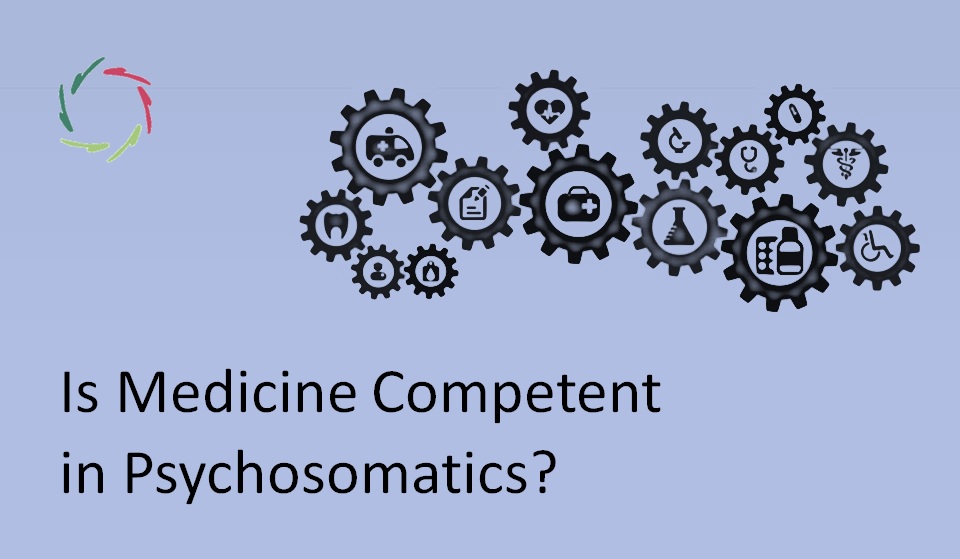Is Medicine Competent in Psychosomatics?

Undoubtedly, physicians are the most competent creatures on earth regarding anything related to somatic (bodily) health. But regarding the psyche?
Of course, physicians can (and must) be empathic.
But empathy does not form part of medical competence. It’s a nonspecific factor. For psychosomatics, one needs to be profoundly competent in the psyche ― way beyond mere empathy.
The aim is healthcare heaven.
The psyche viewpoint is fundamentally different from the soma viewpoint.
Compare it to the difference – in an artful painting – between art and chemistry. Even though both are relevant to artful painting, nobody will see a competent chemist as necessarily an artful painter. Nobody will seek him out for his most valuable advice about the meaningful depth of Picasso or Rembrandt.
Then why would we do something much alike in the case of psychosomatics? Would that not be weird?
Of course, that’s precisely what it is.
It’s high time we get beyond. Otherwise, it’s an unfortunate case of the wrong experts.
No disrespect is meant.
An artist is not necessarily competent in chemistry, nor a chemist in art. A psyche-expert is not necessarily competent in somatic medicine, nor a somatic physician in the psyche.
However, no one should try to incorporate the other side just because he would like to – or is culturally driven to do so – and without putting in the necessary effort. In any such case, ‘incompetence’ is not too harsh a description ― most of all, when people’s well-being, health, and even lives are at stake.
Please let me know if you disagree.
Unfortunately
Psychosomatics is mostly seen as a part of medicine. It is enviously kept within this edifice. At the same time, it is perceived by many (most) of my medical colleagues as an annoyance. As a result, they try to get rid of it while trying to keep it under the medical umbrella.
One way to accomplish this concretely is to do several somatically oriented examinations and then conclude that nothing is found and therefore, that nothing serious is happening and the case can be dismissed.
The patient can be dismissed.
The psyche – the real one, the free and open one – gets dismissed.
Meanwhile, analogous to the artful painting, mismanaging the psyche frequently leads to more severe consequences than mismanaging the soma.
Psychosomatics, an obsolete term?
The purported reason for this ‘obsoleteness’ is that patients may find it derogatory to see their problems as psyche-related. It’s as if this stands equal to being dismissed. We just saw why.
It’s a pity that the psyche is not respected by most somatic experts in any domain of psychosomatics, which forms a huge part of why people seek out medicine. Naturally, patients are not keen to fall in the ‘mental category.’ Many experience any hint in this direction as derogatory, made so precisely by the somatic emphasis.
Therefore, I am a strong proponent of keeping the term psychosomatics (or psycho-somatics) and seeing this as a badge of honor. It signifies profound self-respect in being open to oneself as a total person.
There is nothing derogatory to the psyche as such.
Quite the contrary! The psyche is our most meaningful and valuable side. In other words, viewing some psycho-somatic condition at least also from the perspective of the psyche can lead to the most interesting results — in case the competence is available to support people in this vein.
This is hardly found within somatic medicine, which includes biological (medication galore) psychiatry. Nevertheless, valuing the psyche is an indicator of being realistic and real, beside being immensely much more cost-efficient.
Also – most crucial of all – it leads to a stance of Compassion, basically.


